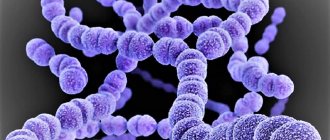What are the causes of chronic diarrhea?
Loose stools in an adult, which are observed for a long time, can be the result of a number of factors and diseases. They determine the course, prognosis and treatment of diarrhea. The main reasons for frequent bowel movements:
- Changing the nature of the diet. It is especially often observed when moving to another region with unsuitable food products (dairy - for lactase deficiency, wheat protein - for celiac disease, etc.). The same reaction will occur with a sharp increase in laxative foods (containing fats, fiber, etc.) in the menu.
- Gastrointestinal diseases. These include inflammatory diseases (of the pancreas, intestines, etc.), the presence of neoplasms, the condition after surgical treatment (intestinal resection), and dysbacteriosis.
- Infections of the digestive system (bacterial, viral, parasitic).
- Endocrine disorders (thyroid, pancreas).
- Impaired blood supply to the intestines.
- Pathology of the immune system (AIDS).
- Presence of chronic intoxication (alcohol).
- Application of specific treatment. Loose stools will be accompanied not only by taking laxatives, but also by radiation therapy and treatment with cytotoxic drugs.
Reasonable treatment tactics
What should a person do if laxatives no longer help and nothing helps with constipation? First of all, you need to contact a specialist.
Using laboratory tests and functional diagnostic methods, the doctor will find out the true cause of fecal retention, determine the condition of the lower intestine and the presence of its diseases.
After diagnosis, treatment tactics for constipation are selected taking into account the individual characteristics of the individual patient.
Therapy should be varied and include the following activities:
- Massage of the rectum and abdomen.
- Correction of the diet.
- Acupuncture;
- Magnetic-vacuum treatment.
- Traditional medicine.
Under the influence of complex therapy, the body's metabolism accelerates and digestive function is normalized.
Every day the act of defecation becomes easier, and independent bowel movement is gradually restored without the help of laxatives and enemas.
Treatment of constipation due to pelvic floor dysfunction
Pelvic floor dysfunction is most often the result of a difficult birth or injury. In such patients, the movement of feces through the large intestine is slow, so they are prescribed laxatives.
However, with pelvic floor dysfunction, these drugs often do not bring the desired effect.
If laxatives do not help, then you should stop taking them, and to achieve results, try following the following treatment recommendations:
- Try to empty your bowels on your own at the same time every morning.
- Under no circumstances should the natural urge to defecate be suppressed, and when they appear, immediately go to the toilet.
- Patients with pelvic floor incompetence and persistent constipation can receive oil microenemas.
- A microenema with pharmaceutical magnesia powder is also effective (dilute 20 g of powder in 100 ml of water). 80 ml of solution is enough.
Restoration of intestinal microflora
Poisons formed when feces stagnate in the intestines are absorbed into the blood and poison the body.
To restore normal microflora, it is necessary to populate the intestines with beneficial bacteria that will displace harmful microorganisms. For this purpose, the doctor prescribes probiotics and prebiotics.
Examples of drugs containing both pro- and prebiotics:
- Polybacterin;
- Bifiform;
- Bifidumbacterin forte;
- Primadophilus;
- Bactistatin.
Changing your diet
Diagnosis of the causes that led to chronic diarrhea should be carried out by a specialist. There is only one reason that the patient can easily detect and eliminate on his own - loose stools when changing his diet. It can occur with daily consumption of a triggering food factor. These products include:
- Dishes with a high fat content. This can be not only pork or lamb, but also salads with a lot of oil or mayonnaise (especially with meat, avocado, etc.). Long-term diarrhea occurs when eating the same dishes due to an increase in the percentage of fat in them. A typical example is the change of the dairy menu (milk, cottage cheese, sour cream, cream) from the store assortment to village products.
- Dishes containing spicy ingredients. Caucasian and Mexican dishes, the increased consumption of which began suddenly, can cause persistent loose stools. Diarrhea is especially indicative when moving to an area with ethnic spicy food.
- Dishes containing a large amount of fiber. Switching to a predominantly vegetarian menu or replacing cereal side dishes with vegetable ones (cabbage, zucchini, beans) leads to a constant increase in intestinal evacuation.
- Sweeteners. Patients who switch to this method of sweetening food are unaware that consuming large amounts of sugar substitutes affects their stool. Carbonated drinks, sweets, baked goods, tea and coffee tablets all lead to diarrhea.
- Coffee, mint, chocolate. A sharp increase in their consumption affects the intestinal mucosa, causing chronic diarrhea.
A feature of this type of stool disorder is a clear connection with a change in diet.
Why are natural laxatives better than medications?
In children, constipation is often accompanied by poor diet choices.
It is in children that treatment with natural laxatives can be carried out easily and without consequences if you introduce fermented milk products, vegetables and fruits, and fiber-rich dishes into the daily menu. There is no need to give laxative products in large quantities; for a mild effect, a small portion is enough, but on an ongoing basis.
Many medical preparations disrupt the composition of the microflora, which is why, in case of infrequent constipation, it is safer and more effective for children and pregnant women to use natural laxative products.
Symptoms of diarrhea
The main symptom is frequent loose stools. Depending on the causes that led to chronic diarrhea, inclusions of mucus, pus, blood, whole helminths (roundworms) or their fragments may be observed in the stool. In this case, flatulence, rumbling, seething, and abdominal pain may be observed.
Constantly loose stools may be accompanied by extraintestinal manifestations of diseases that cause diarrhea. With cholecystitis, patients complain of a bitter taste in the mouth, with chronic alcohol intoxication - with a change in skin color, with infectious diseases - with an increase in body temperature. With the allergic nature of the disease, skin rashes occur. External signs of chronic diarrhea may include dry skin and decreased elasticity. Thirst bothers patients to a lesser extent than with an acute process.
What components of the products cause relaxation?
Products with a laxative effect are effective due to:
- coarse fibers;
- cleansing the intestines and restoring water and electrolyte balance;
- stimulation of contractile activity;
- softening and lubricating for gentle movement of the lump.
Depending on their properties, four groups of laxative products are distinguished.
The first includes vegetables, fruits, legumes, berries, herbs, and porridge.
They contain fiber that does not decompose. But when swelling, it leads to tension in the walls, which causes their active contraction.
Due to the accumulation of fluid, the stool softens and it gently leaves the intestines. In spastic form, such nutrition, on the contrary, will be harmful, since the accumulation of undigested food will cause flatulence and pain.
By breaking down into simple carbohydrates, polysaccharides help restore the microflora of the organ. Mineral salts supply electrolytes, which increases tissue turgor and helps restore mucous membranes.
In case of diabetes mellitus, such nutrition should be carried out under the control of glucose levels.
The third group includes citrus fruits, salted and pickled vegetables, and fermented milk products. These are natural intestinal stimulants.
Organic acids affect the receptors, increased juice production occurs, digestion and peristalsis increase.
Caution should be exercised by persons with diseases of the gastrointestinal tract and high acidity.
The fourth group includes oils. They coat the mucous membranes, reduce fluid absorption, stimulate bile production, and soften stool. The use of vegetable oils is contraindicated for inflammatory diseases of the gallbladder.
We should not forget about water. It contains potassium and magnesium, which has a beneficial effect on the intestines.
Water from wells should be consumed raw so that the body can receive the necessary components. Magnesium is responsible for the functioning of nerve impulses, and potassium helps normalize muscle contraction.
Some foods also contain these substances, for example, potassium can be found in raisins, prunes, dried apricots, bananas, watermelons, potatoes, legumes, herbs, carrots.
Magnesium is found in nuts, seaweed, sesame, and buckwheat.
Diagnosis of diarrhea
To make a diagnosis, it is necessary to know when and how the disease occurred, which preceded the increase in bowel movements. Information about the duration of the disease, the characteristics of its course, daily fluctuations (which complaints predominate in the morning, after meals, etc.) is also important. With palpation, it is possible to establish not only the localization of maximum pain, but also the presence of neoplasms.
Blood (general analysis, liver enzymes, antibodies, etc.), urine (OAM) and feces (coprogram, analysis for helminth eggs, occult blood) are subjected to laboratory research methods. The results provide extensive information for differential diagnosis. This method allows us to identify the functional state of organs and systems, the degree of development of pathological changes, their cause and course in dynamics. It is especially important because the arsenal of instrumental diagnostic methods for diarrhea is scarce (endoscopic methods, intestinal x-rays). Ultrasound in this case will provide little information due to swelling of the intestinal loops.
Products for constipation in childhood
In order to cope with delayed bowel movements, babies are advised to normalize their diet. It is good for the intestines to eat fruit and vegetable purees, drink freshly squeezed juice, and consume fermented milk products. Recommended cereals include pearl barley, buckwheat, oatmeal, and millet.
In older children, constipation is diagnosed mainly in the spastic form. Therefore, raw vegetables are abolished, and melons and dried fruits are introduced into the diet. Prunes and their decoction are useful.
Zucchini is introduced into the child’s daily menu, sometimes replacing it with pumpkin.
In the chronic form, you can prepare a laxative mixture and consume it on an empty stomach. To improve stool, you need a tablespoon in the morning on an ongoing basis.
To prepare the sweets, mix a glass of prunes, raisins, dried apricots, 0.5 liters of honey, 20 g of flax and senna seeds. The resulting mixture is stored in the refrigerator.
What to do for chronic diarrhea?
If you notice frequent loose stools lasting more than 2 to 3 weeks, you need to start treatment. The only factor that the patient can independently exclude is food. When consuming foods that are not suitable for consumption even in minimal quantities, they must be completely eliminated. Such cases include allergic reactions to foods and enzyme deficiency (lactase, celiac disease, etc.). They must be avoided. If you eat a large number of foods that in normal quantities do not lead to diarrhea, you need to temporarily exclude them from the diet. After a 2-3 day break and stool normalization, they can be eaten with a gradual increase in quantity. These dishes should not be overused.
To stop diarrhea, you must consult a doctor. He will conduct a diagnosis and find out why changes have occurred in the body. Frequent loose stools can be a sign of serious diseases. Timely initiation of adequate treatment increases the chances of recovery.
The occurrence of diarrhea signals any diseases in the gastrointestinal tract. If the disease is protracted, it leads to disruption of the functioning of the entire body. Why does loose stool in an adult cause concern among doctors for a long time? In this short review you will learn about the main causes of the disease and methods of treatment at home.
List of proven natural remedies
There are several ways in which natural or chemically synthesized compounds can produce a laxative effect.
- formation of bulky soft feces;
- stool liquefaction;
- hydration of the lower intestines, facilitating bowel movements;
- increased peristalsis.
Typically, laxatives, whether natural or synthetic, have multiple effects and work very effectively. Their one-time use does not cause harm. But if you use such medications frequently, they can have an extremely negative impact on your health and lead to the development of a huge number of side effects.
Foods that weaken the intestines do not work as quickly and brightly, but they do not have a negative effect.
Seeds
One of the most effective food remedies to loosen the intestines is
The fact is that they are unusually rich in soluble fiber. 20 grams contain almost 8 grams of plant fiber. That's a lot.
Soluble fiber is a powerful laxative because it helps form bulky, soft stools. Chia seeds are so high in fiber that loose bowels are a common side effect of eating them.
Flax seeds. This product also contains a lot of plant fiber. But unlike chia, flax seeds contain not only soluble fiber, but also insoluble fiber. One tablespoon contains 1 gram of soluble and 2 grams of insoluble fiber.
If soluble plant fiber is responsible for the formation of bulky soft feces, then its insoluble form ensures their rapid movement through the intestines.
Legumes
They are classified as products that weaken people for two reasons.
Firstly, they have a lot of fiber. For example, in one glass of ready-made lentils, there are 15.6 grams of fiber.
Secondly, legumes enhance the production of butyric acid, which has many beneficial properties. Among other advantages of butyric acid is its ability to enhance intestinal motility, and, therefore, “weaken” it.
Probiotic Products
Sauerkraut. It works both quickly and in the long term. Refers to laxative products due to the presence of a significant amount of fiber.
At the same time, sauerkraut not only promotes bowel movements during one specific day, but also, thanks to the presence of probiotics, treats chronic constipation.
Probiotics normalize the functioning of the intestinal microflora, and this is extremely important for eliminating problems with bowel movements.
Only naturally fermented cabbage has a laxative effect. The product that can be found in supermarkets in plastic containers is often devoid of probiotics. Because the cabbage in it was fermented not in the traditional way, but with the help of vinegar.
Kefir. It also contains probiotics, and therefore, with regular consumption, helps eliminate chronic constipation.
It can also help with quick relief. True, it is not very effective and you need to drink quite a lot - at least half a liter.
But if you pour chia or flax seeds with kefir, the laxative effect will not take long to arrive.
Olive oil
“Lubricates” the lower intestines. This makes defecation easier in cases where the stool is too hard. In addition, olive oil increases contraction of the small intestine.
This product is recommended for use even when it is impossible to do without the use of medications. It has been found that medicinal laxatives work more effectively when combined with olive oil.
Obviously, all vegetables contain a significant amount of fiber. Therefore, they help to weaken the intestines. However, there are vegetable products that have additional properties that are useful for cleansing. These are the ones we will highlight.
All green vegetables (spinach, kale, lettuce, all types of cabbage, etc.). Rich in magnesium. And the lack of this microelement often leads to constipation. It is not for nothing that medicinal laxatives often include magnesium, which thins stool by attracting additional water to it.
Tomatoes. They contain a lot of fiber. To combat constipation, they are useful because they are usually included in the menu in raw form. And this distinguishes them from many other vegetables that we eat mainly cooked. And to treat constipation they should eat raw.
Such is, for example, beets. In its raw form, it is an extremely powerful natural remedy for inducing the urge to defecate. Since it not only fills the intestines with fiber, but also actively stimulates peristalsis.
However, not all people can eat beets raw. Moreover, not everyone’s health allows them to do this. Since both raw beets and their juice have contraindications for consumption.
Pumpkin. It works very effectively. And not only in raw, but also in finished form. In addition to the abundance of fiber, it contains a lot of potassium, which maintains the correct electrolyte balance in the intestines. Which is extremely important for loose stools, which can be caused by this vegetable.
Fruits
The situation with fruits is exactly the same as with vegetables. All of them contribute to relaxation to one degree or another. But some are more effective.
Apples. Amazing fruit. Since it is indicated for nutrition during diarrhea, and at the same time it is a laxative product, useful for constipation in adults and children.
Apple pectin is not only an excellent prebiotic that nourishes beneficial intestinal microflora. It also enhances the contraction of the colon, thereby helping stool move towards the exit as quickly as possible.
In terms of their chemical composition, pears, kiwis, many berries (strawberries, blueberries), as well as carrots, are also similar to apples.
There is pectin in citrus fruits. But in much smaller quantities. Sometimes they are also advised to eat for relief. However, their healing effect in this case is mainly due to the presence of a large amount of moisture, which many people suffering from chronic constipation lack.
Peaches, apricots. Fiber with a lot of moisture is just what you need to quickly form soft stools.
Plums. In addition to the fact that plums contain fiber, including its variety - pectin, they contain another compound that is necessary to eliminate constipation. This is the sugar alcohol sorbitol. This substance attracts additional moisture into the stool. Due to this, they become more liquid and rush to leave the body.
Avocado. Excellent for helping to empty the intestines. Despite its delicate creamy consistency, the fruit is rich in plant fiber. In addition, it contains healthy oils, the effect of which on the intestines is similar to the effect of olive oil.
Dried fruits
Prunes. One of the most popular products that loosen stool in adults and children. Its effects are similar to those of fresh plums, but are often even more pronounced due to the higher concentration of sorbitol.
Prunes work even more effectively than some medicinal plants used to cleanse the intestines.
Dried apricots, raisins, figs, etc. They do not work as effectively, because they cannot boast of a high concentration of sorbitol. But they contain more potassium, which helps maintain electrolyte balance in the intestines. And, in addition, to a lesser extent than prunes, they cause bloating and gas formation.
Oat bran
1 cup contains 14 grams of fiber (both soluble and insoluble).
Effectiveness has been proven even for elderly hospital patients.
It was also found that regular inclusion in the diet allows 59% of older people who constantly use medicated laxatives to stop using these harmful pills.
This drink has a very strong effect on some people. They drink a cup and immediately go to the restroom.
He has such an influence on everyone. It's just not always expressed so clearly. Coffee increases the release of the hormone gastrin, which, among other functions, is responsible for the contraction of intestinal muscles.
To enhance the laxative effect of coffee, it should be drunk rarely and always after meals, since it is at this time that gastrin synthesis reaches its maximum.
Some sweeteners
Sugar substitutes such as erythritol or xylitol (sorbitol) contain sugar alcohols. And therefore they work similarly to prunes. They attract additional water to the intestines. And it helps soften the stool.
Not all people are affected greatly by sugar substitutes. But for some, chewing sugar-free gum is enough and they go to the toilet.
Since sorbitol (xylitol) and erythritol are by no means the most harmful of all sugar substitutes and even provide some health benefits, their inclusion in the diet can be justified to combat constipation. But only in small quantities. And only when there is intestinal sensitivity to them.
The main causes of loose stools in adults
The norm for a healthy person is to have bowel movements once or twice a day with normal bowel movements. With diarrhea, the number of urges increases. Water diarrhea in an adult for three days is a reason to see a doctor. When conducting a comprehensive study, the causes of chronic loose stools are determined:
In case of poisoning with toxic substances (mushrooms, household chemicals), diarrhea, or loose stools, becomes the first sign that signals problems in the body. If you do not follow the rules of hygiene, then digestive disorders are possible due to poorly washed food and hands. Visiting tropical countries is always dangerous for an unprepared tourist, and the load on the gastrointestinal tract causes loose stools. Exotic dishes or local water are unusual for a traveler, so the possibility of diarrhea after them is increased.
Therapy is prescribed after a comprehensive study, when the cause of loose stools is clear. A person is embarrassed to consult a doctor with his problem, considering it insignificant. The result of prolonged diarrhea will be a dangerous complication - dehydration. It leads to irreparable consequences, including death. At the first manifestations of chronic diarrhea in adults, you should contact medical professionals for help.
Why doesn't laxative help?
Trying to get rid of stool retention on their own, people do not use all methods of treating constipation in combination, but use exclusively laxatives.
Having chosen a medication that has helped to empty the intestines several times, patients take it for months. However, regular and frequent use of laxatives leads to addiction and “laziness” of the intestines.
As a result, independent intestinal peristalsis completely stops, and the patient gradually requires a larger and larger dose of the drug.
It should be remembered that only a gastroenterologist should prescribe the regimen and dosage of such a drug.
How to stop diarrhea and related symptoms
The human body is an integral system; failure of one of the organs signals health problems. Loose stool in an adult for a long time makes you think about eliminating unpleasant symptoms. How to determine that medical intervention is necessary? There are a number of signs that require attention:
- frequent urge to defecate;
- nausea and vomiting;
- heaviness, abdominal pain;
- increased formation of gases in the intestines;
- increased body temperature;
- loose yellow stools;
- blood or black stools;
- foamy green stool.
Rotavirus infection in adults, internal hemorrhoids, the body's protective reaction to toxic substances are accompanied by bloody stool, so you should immediately consult a doctor. A change in stool to a darker color simultaneously with loose stools signals possible tumors in the stomach and intestines. White coating on the tongue and severe diarrhea for a long time indicate problems that should be resolved quickly.
Plum as a cosmetic product
Having dealt with the question of whether plums weaken or strengthen, we can talk about this fruit as a cosmetic product. Since ancient times, our ancestors have used plums as a means to rejuvenate the skin. A face mask based on plum puree will relieve fatigue and also give elasticity to the skin. This kind of mask lasts for a long time, unlike expensive cosmetics. Substances, namely trace elements, that make up plums have a positive effect in the treatment of acne, especially in adolescents.
How to treat diarrhea in adults
Treatment of diarrhea at home in an adult involves a set of measures that are aimed at eliminating the symptoms and causes of the disease. Watery stools can be eliminated with special diet foods and medications. To restore the water balance, droppers with sodium chloride are used. Then you should work on rehabilitation actions to regenerate the body.
Any disease has complications, but loose stools in adults for a long time cause dehydration. Therefore, you need to quickly restore the body’s water balance. The patient is prescribed to drink plenty of clean, boiled liquid or special solutions with added salt. The patient's condition should be carefully monitored. If vomiting begins, drink water often, in small portions.
To eliminate symptoms and restore proper functioning of the gastrointestinal tract, you should review your diet. A gentle diet is based on basic principles:
- a balanced menu throughout the day to ensure normal life processes;
- reducing the load on the digestive system;
- gradual expansion of the diet.
A diet for chronic diarrhea places special demands on preparation technology. Therapists recommend boiling or steaming food. You should forget about smoked or fried foods in order to get rid of loose stools. The framework of therapeutic nutrition provides for the consumption of dishes only in a warm form (exclude hot and cold). The volume of portions is reduced so that the stomach gradually gets used to working correctly.
Chronic diarrhea in adults occurs due to poor diet. When planning your diet, you should pay attention to the expiration dates of food. There are a number of products that are used for chronic diarrhea:
- stale bread, crackers;
- broth (meat, vegetable);
- lean meats and fish;
- boiled eggs;
- cottage cheese with low fat content (milk, kefir is not allowed);
- baked apples;
- natural jelly (without chemicals and dyes);
- weak tea, coffee.
After restoring the functioning of the gastrointestinal tract, you should gradually expand your diet. When including a new type of product in your menu, carefully monitor your body’s reaction. If there are no negative results in the form of resumption of loose stools, then after a certain period of time introduce a new dish. Do not forget about processing technology, giving preference to steamed or boiled types of food.
Do not self-medicate - only a doctor will prescribe tablets for diarrhea in adults, so a visit to a medical facility is required. Antidiarrheal drugs, if not treated correctly, cause damage to the intestinal mucosa. If loose stools are caused by inflammatory processes, then an integrated approach is needed. Infectious diseases are eliminated with a course of antibiotics.
Treatment of acute diarrhea, which is accompanied by pain, cramps, and vomiting, is carried out with medications to reduce intestinal motility. If the cause of loose stools is malabsorption, medications with bile acids are prescribed during therapy. Each medicine is prescribed by a doctor individually, according to the diagnosis. Independent use of remedies for loose stools will provoke complications.
One of the consequences of diarrhea is dysbiosis. The therapist’s task is to restore the microflora of the digestive organs. To do this, after treating loose stools, she uses drugs with beneficial bacteria. Additionally, a course of vitamins is prescribed (in tablets, injections) to avoid vitamin deficiency. The loss of fluid during loose stools is then compensated by drips with glucose and sodium chloride. The drugs quickly restore water balance and have a detoxifying effect.
Problems with bowel movements are common; there are many recipes to help get rid of the disease. Folk remedies for diarrhea in adults are used only in mild cases or as prescribed by a physician. One of the most effective tools in the fight against loose stools is oak decoction:
- pour a pinch of tree bark into a glass of boiling water;
- steam in a water bath for 10 minutes;
- take 18 g three times a day.
Laxative salads: recipes
Seeds
Legumes
Olive oil
Fruits
Dried fruits
Oat bran
There are two types of fiber: soluble and insoluble. The soluble type envelops foods and turns into a gel, which stimulates the movement of feces in the intestines. Insoluble fiber is practically not transformed internally. It simply increases in volume and helps remove waste from the intestines.
Scroll:
- Prunes
- Pumpkin
- Beet
- Cabbage
- Onion
- Apricots
- Cucumbers
List:
- Legumes
- Durum wheat varieties
- Cereals
- Carrot
- Flax seeds
- Sea kale
- Oat bran
- Dried fruits
Laxative products
Scroll:
- Porridge, especially rice
- Lean meat
- Baked lean fish
- Cottage cheese
- Bakery products
- Liver
- White flour pasta
Table of foods that strengthen and weaken the intestines
Each person has a different reaction to dairy products. In general, it is advisable to use kefir and yogurt to normalize intestinal motility.
This is because such foods promote an increase in beneficial bacteria in the stomach. It is believed that milk, kefir and yogurt weaken.
Regarding cereals, arnautka, wheat groats and millet weaken. If you cook them in milk, then such a dish will relieve constipation.
- In raw form. A panicle salad is prepared from it. Cabbage, celery, carrots and beets are added to it. Fill with oil.
- Boiled beets. It can be added to a variety of salads and vinaigrettes. Perfectly weakens salad with beets and prunes.
- Beetroot juice. It can be used in an enema. To do this, it is mixed in a 1:2 ratio and a cleansing enema is performed.
Beets as a laxative
List of products that have a laxative effect:
- Liquid wheat porridge
- Vegetable stew
- Baked zucchini stuffed with vegetables or chicken
- Decoctions of dried fruits
- Fermented milk products are introduced as snacks
- Vegetable soups and puree soups with weak meat broth
- Steamed meat cutlets with added vegetables
- Pumpkin casseroles
- Curd casseroles with dried fruits
The child eats foods with a laxative effect
- Drink more water
- Eat often, but in small portions
- Snack on fresh fruit or drink kefir
- Eat oat bran
- Eat flaxseed
Sample menu for the day:
- Breakfast. Steamed omelette and oatmeal
- Snack. A glass of curdled milk
- Dinner. Vegetable soup in a weak broth, cabbage salad, boiled fish and viscous wheat porridge
- Snack. A handful of raisins or dried apricots
- Dinner. Buckwheat milk porridge with prunes, fruit
Salad recipes:
- With prunes. Boil the beets and chop them on a grater. Add a few drops of vegetable oil and pre-soaked and chopped prunes in boiling water.
- With cabbage. This dish is called “Metelka”. The name is due to the fact that the salad removes old stool and helps get rid of heaviness. You need to grate the carrots and raw beets, and chop the cabbage. After this, the dish is seasoned with oil. You can add a little lemon juice and season with garlic.
- Dessert. This dish will help you easily get rid of old feces and help improve digestion. Chop apples and carrots, season with yogurt and sprinkle with raisins.
Laxative salad
Main course recipes:
- Pumpkin casserole. Take the pumpkin and chop it using a grater. Add beaten eggs, a little granulated sugar, and a pinch of salt. Add oat bran. Fill the muffin tins with the mixture and bake in the oven for 20 minutes.
- Omelette with vegetables. Steam some broccoli and some mushrooms. Finely chop the vegetables and mix with the eggs. Add some milk. Cook by steaming or in the oven.
- Milk soufflé. Whisk warm milk with egg whites and sugar. Place the mixture on the fire and stir until thickened. Place the mixture in the refrigerator, after distributing it among the molds.
Porridge with a laxative effect
You can cope with constipation without the help of medications. This can be done by changing your diet.
Eat as many vegetables as possible that contain coarse fiber, because it is this that allows you to restore the intestinal microflora and improve its functioning. Such products include beets, cabbage, pumpkin, carrots, and sweet peppers. You can prepare a tasty and healthy salad by boiling carrots and beets and grating them on a coarse grater. It is advisable to season the dish with linseed or olive oil. Eat a serving of salad for three days to relieve constipation.
And if you want to fix the problem in one or two days, prepare a smoothie of spinach, cucumber and water. Simply place the chopped vegetables in a blender and add a small amount of liquid, then blend everything thoroughly. Many nutritionists recommend this remedy for constipation.
Fruits are perhaps the most delicious “savior” foods. If you suffer from stomach constipation, you can prepare a salad from pieces of avocado, oranges, and grapes. Use different fruits each time to restore your intestinal microflora as quickly as possible. It is advisable to season this salad with yogurt. Children will certainly like this dish, because it is very tasty!
Avocados contain large amounts of folic acid. It is enough to eat one fruit for four days for the intestines to finally stop bothering you. This product improves the absorption of nutrients from food, because it contains a large amount of oil. Oranges help remove toxins and carcinogens from the body. Raw grapes have a powerful laxative effect on the intestines.
Some types of yogurt contain special bacteria that improve intestinal microflora and help fight the problem. Just buy fermented milk products without added sugar and various flavorings and flavorings. It is very important!
You can make yogurt at home.
What weakens feces?
What products you need to pay attention to:
- Kefir - this product is very unique, since fresh (1-3 days) non-fat kefir weakens, but “old” (more than 3 days) already strengthens.
- Milk – fatty milk weakens you, and “too” fatty milk can even cause poisoning.
- Ryazhenka – has a good laxative effect, it is very light, softens feces.
- Sourdough – due to the high content of “beneficial” bacteria, gives a very good laxative effect and normalizes intestinal function.
- Curdled milk – normalizes stool and water-salt balance in the body.
- Yogurt – contains bifidobacteria, which normalize stool and strengthen the immune system.
- Sour cream – fatty sour cream can weaken you, but very fatty sour cream can even cause indigestion.
Dairy products
In order to solve a problem related to human health, you do not always need to drink handfuls of medicine - sometimes it is enough to simply reconsider your lifestyle and diet. And even when you really can’t do without medications, they alone are not enough, and in addition to drug therapy, doctors recommend this or that diet to the patient.
The assumption that different products have different effects on the human body depending on the substances they contain was expressed in ancient times. For example, history attributes the famous phrase that a man is what he eats to Hippocrates, who was born around 460 BC.
Today, the properties of most food products have been well researched, and doctors can say exactly how a particular product affects the human body.
Experts recommend solving the problem of constipation by making changes to the patient’s usual diet. And if constipation is a symptom of some disease, it is recommended to combine treatment with a special diet.
For a complete list of foods that weaken or strengthen the intestines, see here.
Since the cause of constipation is sluggish bowel function, the task is to force the intestines to work more actively, forming “correct” feces and pushing them to the sphincter. This task is perfectly accomplished by products containing coarse indigestible fibers, which irritate the intestinal walls and force it to work more actively. These products are commonly called laxatives.
And food containing a lot of easily digestible carbohydrates, which has little fiber, makes the intestines lazy and does not contribute to normal bowel movements. That’s why they say about such food that it strengthens you.
The champions among “strengthening” foods are refined polished rice, semolina and so-beloved sweets and pastries.
The first place on the list of foods that greatly weaken you belongs to prunes. It contains a lot of coarse fibers that stimulate digestion, as well as sorbitol, which activates intestinal function.
The second place is occupied by beets, which contain a unique substance inulin, which nourishes the beneficial intestinal microflora, and thereby normalizes its functioning. For a good laxative effect, it is enough for an adult to consume 200 grams of prunes and 200 grams of beets (or 200 ml of beet juice) daily.
However, we must not forget about the bronze medalist. After all, the third place in the list of laxative foods is occupied by pure water, which an adult is recommended to drink at least two liters per day for good digestion. Water is necessary to facilitate the passage of the bolus of food through the intestines and the formation of normal feces.
In addition to the top three, cabbage, zucchini, tomatoes, beans, peas, pumpkin and spinach have a laxative effect.
Among fruits, apples, cherries, pears, bananas, oranges, cherries, pineapples, avocados, and melon have laxative properties.
Another useful laxative product is seaweed, or kelp. This algae has a laxative effect. Seaweed is a storehouse of vitamins, microelements and amino acids; it has antioxidant, immunostimulating, antithrombotic and antisclerotic effects on the body.
Video about the causes and treatment of diarrhea in adults
Diarrhea is an unpleasant disease that disrupts the usual rhythm of life and causes constant discomfort. Chronic loose stools require special treatment. Incorrect therapy will lead to irreparable consequences and complications. In this short video you will learn about first aid for diarrhea: what to do and how to quickly get rid of the obsessive illness.
Our quality of life depends on how we honor ourselves throughout the day. At the same time, it is rare that anyone pays attention to minor health problems, chronic ailments that rarely manifest themselves and do not affect the usual daily routine.
This, for example, concerns such a problem as constipation - a person does not experience pain and is not in a hurry to see a doctor. However, over time, if you do not begin to resolve this issue, weakness will appear and problems with performance will be observed. One way to cope with constipation is to temporarily change your diet to include foods that weaken the intestines. In most cases, this is enough and you can do without medication.
Don't forget about water!
Including foods that have a laxative effect in your diet is necessary to combat chronic constipation. But we must not forget about the correct water regime.
Very often, problems with bowel movements are associated with insufficient hydration of the body. He receives so little ordinary drinking water that he is forced to save it like the apple of his eye and there is no moisture left to liquefy the stool.
Therefore, the first thing you need to do if you are faced with problems with daily bowel cleansing is to drink more ordinary clean water.
And in addition to water, it wouldn’t hurt to include drinks in your diet that help normalize the functioning of microflora. And this is not only kefir and other natural lactic acid products, but also kombucha, which is a naturally fermented drink. This means it contains an abundance of probiotics.
And, of course, we remember the watermelon. The berry is seasonal. But when it is possible to include it in your diet, people suffering from chronic constipation should definitely do so. Watermelon perfectly moisturizes the body, while also adding a noticeable amount of fiber. This is just what you need to immediately go on important matters.
TOP foods and dishes that weaken the intestines
We have compiled a list of products that will help you in such an unpleasant event. It is not recommended to abuse them during normal bowel function, otherwise you will have to urgently cook rice porridge and eat a lot of pears to strengthen the intestines.
- Vegetable oil. You need to drink 1-2 tbsp. product on an empty stomach.
- Rhubarb-based compote, and it is advisable to cook it in a water bath for 20-30 minutes. Since the taste of such a drink cannot be called pleasant, it should be sweetened with honey.
- Natural oatmeal, which should be eaten for breakfast. And to enhance the effect, it is seasoned with linseed oil.
Oatmeal should be included in the diet even if there are no intestinal problems for prevention purposes (Photo: Pixabay.com)
True, it is important to consider that changing your diet is not a treatment, because if the products listed above did not help you and you begin to experience discomfort, it is important to consult a doctor in time.
Beets: how to use, as a laxative?
Constipation is not only a symptom of many diseases, but also a consequence of intestinal dysfunction. Constipation occurs in the rectum. Sometimes its appearance is provoked by something, in other cases it is pathological. Most often, the appearance of this trouble is explained by a violation of nutritional rules. In addition to the absence of defecation, abdominal pain, a feeling of fullness, headache, intoxication may appear, there may be no desire to eat, or what is eaten is returned as vomit.
The most unpleasant thing with constipation is stool. It is rough, heavy and smelly. Going to the toilet is difficult and painful. You may push a lot to pass a little stool, but not get any relief. In addition, due to overstrain, the walls of the blood vessels in the eyes burst, the blood vessels become tense, and constant migraines, hemorrhoids and anal fissures may appear (which in turn leads to inflammatory processes, painful wounds and bleeding).
What is the treatment for constipation?
- Improved peristalsis (constriction) of the intestinal walls
- Stool softening
- Stimulation of intestinal gland secretion
You can prevent and treat constipation without resorting to medications (suppositories, laxative syrups, enemas). To do this, it is important to saturate your menu with foods rich in fiber.
Fiber is a dietary fiber that is later fermented into mucus, which coats the stool and makes it easier to pass.
Another, no less important “laxative” substance is organic acid. It is able to directly affect intestinal motility, increasing its activity.
It is also interesting that “sugary” foods (berries, fruits, dried fruits, beets) “attract” water to themselves, which means the feces themselves become “watery.” In addition, “sugary” foods can “ferment,” and the substances they release during fermentation directly affect the glands, provoking intestinal contractions.
The same principle of action applies to salty foods (“attracting” water). Fatty foods make stool “soft”, so it is easier for it to move through the intestines.
Even cold foods can affect intestinal function. Such food contains “carbonic acid”. This food affects the thermoreceptors in the intestinal walls, causing them to contract more strongly. What can be classified as cold foods: soda, kvass, kumiss, okroshka, beetroot soup, ice cream.
Products with laxative effect:
- Cereals. We are talking about whole grains and coarse cereals. Such products are not completely digested, but directly act on the intestines and its walls. The most effective are bran, wheat, and oats.
- Cereals. We are talking about “dark-colored” cereals (not white, like rice, for example - it strengthens). Cook porridge from buckwheat, oatmeal, pearl barley and millet. It is advisable to add vegetable oils and pieces of vegetables or fruits to dishes.
- Vegetables. They contain a lot of dietary fiber, which quickly saturates and promotes the movement of feces through the intestines.
- Fruits. They contain not only dietary fiber, but also organic acids and sugar.
- Vegetable oil). They act very simply - they soften the intestinal walls, as if “lubricating them” and this facilitates the easy passage of feces.
- Dairy products. Products fermented with “live” bacteria can improve the intestinal microflora and affect its peristalsis.
What weakens feces?
Laxative vegetables:
- Pumpkin – is able to regulate bowel function, soften stools and help move feces.
- Beets – the rich sugar content of the root vegetable helps to “attract” water and the stool becomes watery.
- Cabbage has a lot of dietary fiber, which “irritates” the intestinal walls.
- Peas and beans - improve and speed up the digestive process.
- Greens - in addition to the fact that any greens contain a huge amount of dietary fiber, they also contain acids and substances that enhance the outflow of bile.
- Carrots are rich in sugar, fiber and organic acids.
- Seaweed - actively stimulates the gastrointestinal tract due to its rich dietary fiber content.
"Laxative" fruits -
- Plum - it contains a special sugar “sorbitol”, which is not absorbed by the intestines, but actively affects the intestinal walls.
- Pear – the pulp contains a lot of sugars, and the skin contains fiber.
- Banana - in addition to the fact that these fruits contain a lot of fiber, banana is a champion in potassium content - a mineral that maintains water-salt balance.
- Apple - the fruit is a source of pectin, which can actively influence the intestinal walls.
- Kiwi – the pulp of the fruit is rich in dietary fiber
- Avocado - in addition to fiber, has a high content of potassium and organic acids.
Products of plant origin
The table will help you figure out which foods are healthy and which are not.
| Product groups | Strong laxative effect | Mild laxative effect | Bonding action |
| Dairy (fermented milk) products | Yogurt, kefir, fermented baked milk, yogurt | Sour cream, milk, whey, cottage cheese | Powdered milk |
| Vegetables and fruits | Apricot, pear, plum, banana, kiwi, avocado, apple, watermelon, melon, beetroot, zucchini, carrot, pumpkin | Berries, greens, cabbage, pineapple, orange, grapes, tomato, beans | Potatoes, eggplant, pomegranate, persimmon, blueberries |
| Meat | All types and varieties of meat (high protein content) | ||
| Fish | Fatty fish | ||
| Bakery products | Cookies, baked goods, bread | ||
| Cereals and cereals | Bran, cereals | Buckwheat, oatmeal, pearl barley, millet | Rice, Couscous, bulgur, palenta |
| Sweets | Chocolate | ||
| Beverages | Fresh juices | Green tea | Chamomile tea, black tea |
"Bonding" and "loosening" products
How to take it:
- Raw beets. It has a rich supply of dietary fiber, which makes the intestines work actively. You can eat whole or grated beets; they have a fairly pleasant taste.
- Boiled beets. Surprisingly, this root vegetable, even after cooking and exposure to high temperatures, does not change its chemical composition and therefore the properties of boiled beets are exactly the same as those of raw ones.
- Beetroot juice. It is useful to drink regularly to normalize stool.
The most effective salads:
- Beetroot. The most important component in the salad is beets, which have the most laxative properties. It should be grated using a coarse grater or a Korean carrot grater. The salad is flavored with a few tablespoons. any vegetable oil, a couple of cloves of squeezed garlic and herbs.
- Cabbage. To prepare, you should chop several types of cabbage, such as white, blue and Chinese cabbage. The taste of the salad can be improved with chopped herbs, vegetable oil and finely chopped onions.
- Carrot-apple. Very simple, tasty and “dessert” salad. It’s easy to prepare – grate the carrots and apple on a coarse grater, season with 1-2 tsp. linseed oil. If desired, you can sweeten it a little.
- Fruit. To do this, you need to mix chopped apple, pear, kiwi and other fruits (all have a weak or strong laxative effect) and season with a few tablespoons. yogurt, sprinkle with raisins or prunes.
- With celery. Celery, apple and carrot are grated in equal proportions. You can add white cabbage and the green part of celery, season with oil.
- Brush salad. The classic salad consists of cabbage (white), carrots and beets. They are rubbed in equal quantities and mixed with oil.
"Laxative" salad
Any freshly squeezed fruit or vegetable juice, decoctions of dried fruits and dried berries have a laxative effect.
It is also useful to drink oil dissolved in water, which will coat the intestinal walls and help move feces.
In addition, it is believed that maintaining a water-salt balance (namely, at least 2 liters of water per day) will help avoid constipation.
What drinks can you drink:
- Beet juice
- Tomato juice
- carrot juice
- Pear juice
- Plum juice
- Dried fruits compote
- Red rowan decoction
- A glass of warm water and 1 tsp. honey
- A glass of warm water and 1 tbsp. linseed oil
- Cucumber juice
- Green tea with milk
- Flaxseed decoction
First half of the weekSecond half of the week
There are other reasons:
- Incorrect feeding
- Not drinking enough
- No power mode
- Unhealthy food
- Low child activity
What to feed (menu):
- Vegetable salads
- The vinaigrette
- Vegetable stew
- Stew
- Fresh fruits
- Baked apples
- Honey
- Boiled or steamed poultry and fish
- Dried fruits
- Dairy products
- Curd casseroles
- Fresh juices
- Fresh milk
- Boiled porridge
- Vegetable casseroles
What not to feed:
- Strong black tea (it is better to brew berries or herbs).
- Do not feed semolina porridge and rice
- Include radishes, radishes, and daikon in the menu little and rarely.
- Don't add garlic to your dishes
- Moderate baked goods and breads, cookies
- Feed pasta in small quantities
- Limit foods that are too fatty
- Limit foods that are too high in protein
Constipation diet for baby
How to saturate your diet for pregnant women:
- Vegetables and fruits
- Fermented milk products
- Pickled vegetables
- Stewed vegetables
- Stew
- Pumpkin with porridge, baked, in a pie
- Freshly squeezed juices
- Vegetable salads
- Fruit salads
- Vegetable and chicken soup
- Cold beetroot
- Vegetable caviar
- Fish, poultry and beef
- Berries
- Cereals and cereals, boiled porridges
What to eat for a nursing mother:
- Beetroot (soup, beetroot soup, borscht without cabbage, beetroot caviar).
- Baked pumpkin
- Kefir with flaxseed
- Zucchini cutlets and pancakes
- Vegetable cutlets (carrots, beets, greens, potatoes)
- Baked apples
- Bananas
- Boiled porridges, cereals
What a nursing mother should not eat:
- Pickling
- Pickles
- Kvass
- Okroshka
- Tomatoes
- Cabbage
- Pear
- Berries
Seeds
Legumes
Olive oil
- prunes;
- dried apricots;
- cabbage;
- pumpkin;
- carrot;
- beet;
- Bell pepper;
- spinach;
- avocado;
- oranges;
- grape;
- honey;
- olive oil;
- olives;
- fermented milk products (yogurt, yoghurt, kefir).
What can constipation lead to?
If problems in the intestines appear constantly, you need to start fighting them. So, the intestines must be emptied daily, otherwise many health problems may arise.
The main problem is intoxication of the body, which can cause apathy, deterioration of skin condition and problems with immunity.
Another danger is the development of hemorrhoids and the appearance of cracks. Moreover, it is important to take into account that the human intestines stretch over time, which is why the desire to have a bowel movement occurs even less frequently, which will only aggravate the problem.
List of laxative products
If you have problems with bowel movements, enter the following in the menu:
- vegetables: carrots, onions, pumpkin, beets, broccoli, zucchini, cauliflower;
- legumes;
- whole wheat bread;
- cereals;
- fruits: plums, apples, peaches, bananas, apricots;
- vegetable juices;
- dairy products;
- dried fruits;
- spinach, celery;
- grapes, figs, prunes.
| Products | Fast action | Medium intensity | Fastening |
| Milk products | Fresh kefir, fermented baked milk, yogurt | Milk, sour cream, whey | Kefir that is more than 72 hours old, milk powder |
| Fruits vegetables | Pears, watermelon, apricots, plums, kiwi, apples, melon, avocado, carrots, pumpkin, zucchini, beets | Cabbage, citrus fruits, grapes, tomatoes, pineapple, berries | Persimmon, potatoes, pomegranate |
| Fish | Fatty varieties | ||
| Bakery | Baking, all baked goods | ||
| Sweets | Chocolate | ||
| Cereals | Bran, cereals | Oats, millet, pearl barley, buckwheat porridge | Rice porridge, bulgur |
| Beverages | Fresh juices from vegetables and fruits | Green weak tea | Black tea, chamomile infusion |
Side effects
All natural laxative products provide both benefit and harm to the patient. They help normalize the functioning of the intestines, remove toxins and accumulated harmful substances, cleanse the body, reduce flatulence, and reduce weight. But at the same time, they are addictive when taken for a long time.
In addition, other side effects may occur:
- difficulty digesting rough food;
- avitaminosis;
- dehydration;
- brittleness and fragility of nails and hair;
- emotional instability.
Products with fiber
The best “friend” for your intestines is fiber - dietary fiber. A lot of fiber is found in fruits, vegetables, grains and herbs.
On the one hand, fiber is useful in that it is able to accumulate water. Thus, the fibers swell, increase in mass and promote rapid evacuation of intestinal contents. On the other hand, foods enriched with fiber increase the number of beneficial bacteria in the intestines, which also take part in the digestive process. Thanks to this microflora, fatty acids are formed in the intestines, which play an important role in normalizing digestion.
The best source of fiber is bran.
Bran is sold in stores or can be purchased at a pharmacy.
In addition to fiber, bran contains a huge amount of vitamins, in particular B vitamins, and microelements. For constipation, it is recommended to eat bran bread,
which has a laxative effect. However, you don't need to eat too much of it.
Pumpkin also contains a lot of fiber .
You can consume this most useful gift of nature in any form: boiled, baked, porridge or puree.
Prunes help relieve difficult bowel movements. For people prone to constipation, prunes,
it is an indispensable product in the diet. If you start eating prunes, you will feel an improvement very soon.
Reader Questions
18 October 2013, 17:25 Doctor, hello! I had the following problem: 2 weeks ago my stomach hurt when I moved at night, the next day I had diarrhea, I took pills for diarrhea, the next day everything went away. I took Enterosgel paste for a week. Then I noticed that I had not gone to the toilet for 8 days and was constipated. I drank Duphalac, but it didn’t help. I went to the toilet twice with great effort, but only a little, and the feces looked like “sheep’s”, with streaks of blood and something similar to pus... My stomach hurt a little tonight. But very often I have an aching, throbbing pain in the lower left abdomen, next to the pubis. I had an OMT ultrasound and everything was fine. Doctor, please tell me what this could be? How dangerous is this?
Ask a Question
When is it better to refrain from treating constipation with foods?
Constipation can provoke a number of unpleasant complications, especially if it becomes chronic. In this case, before using products with a laxative effect, you must undergo an examination and consult with a specialist. After all, most products cannot be used for a long time, and without eliminating the cause of the pathology, the problem will arise again.
Caution should also be exercised in childhood
. Pregnant women also need to carefully select the list of foods for their diet so that it does not negatively affect the fetus and their own health.
All laxative products of natural origin are familiar to the human body. They are better tolerated and cause fewer side effects than similar medications.
You should choose the appropriate diet based on the cause and nature of constipation.
To avoid chronic problems, it is enough to consume the necessary foods in a minimum dose daily. Then they will not cause harm and will constantly supply the body with the necessary components.
What is there when it “fixes”? What foods do not allow the intestines to stop?
Constipation
- This is a real obstacle to normal human life. A constant feeling of heaviness in the lower abdomen, pain, headaches do not give rest. In such a situation, a person is unable to think about anything other than his problem. Constipation prevents you from working normally, making plans, and doing other things.
It is believed that the main cause of constipation is intestinal dysfunction. Peristalsis worsens, causing feces to be retained in the intestines. There is no exact data yet on why these same violations occur. Some experts talk about heredity (a tendency to constipation), while others talk exclusively about external factors. This is primarily the level of activity of a person and what he eats. One of the most dangerous enemies for your intestines is physical inactivity. A sedentary lifestyle impairs intestinal motility
. And if you also get carried away with animal proteins, refined foods and semi-finished products, then everything will only get worse.











